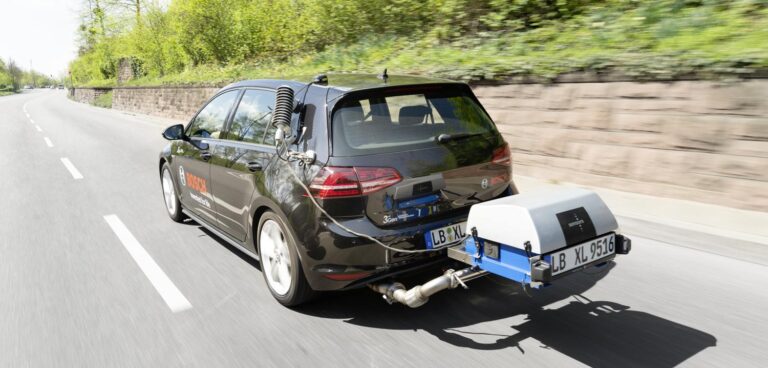As Bosch CEO Volkmar Denner calls for transparency on fuel consumption and CO₂ emissions, the German company has discussed the groundbreaking technology that could offer NOx emissions 10 times lower than limits set for 2020.
“There’s a future for diesel. Today, we want to put a stop, once and for all, to the debate about the demise of diesel technology.” It was with these words that the Bosch CEO Volkmar Denner announced a decisive breakthrough in diesel technology.
New developments from Bosch could enable vehicle manufacturers to reduce nitrogen oxides (NOx) emissions to the point that they already comply with future limits. Even in RDE (real driving emissions) testing, emissions from vehicles equipped with the newly premiered Bosch diesel technology are not only significantly below current limits but also those scheduled to come into force from 2020.
Bosch engineers achieved these results by refining existing technologies. The results have been achieved without the need for additional components, which would drive up costs. “Bosch is pushing the boundaries of what is technically feasible,” added Denner. “Equipped with the latest Bosch technology, diesel vehicles will be classed as low-emission vehicles and yet remain affordable.”
Since 2017, European legislation has required that new passenger car models tested according to an RDE-compliant mix of urban, extra-urban and freeway cycles emit no more than 168 milligrams of NOx per kilometer. As of 2020, this limit will be cut to 120 milligrams.
But even today, vehicles equipped with the company’s diesel technology can achieve as little as 13 milligrams of NOx in standard legally-compliant RDE cycles. That is approximately one tenth of the limit that will apply after 2020. And even when driving in particularly challenging urban conditions, where test parameters are well in excess of legal requirements, the average emissions of the Bosch test vehicles are as low as 40 mg/km.
A combination of advanced fuel-injection technology, a newly developed air management system, and intelligent temperature management has made such low readings possible. NOx emissions can now remain below the legally permitted level in all driving situations, irrespective of whether the vehicle is driven dynamically or slowly, in freezing conditions or in summer temperatures, on the freeway or in congested city traffic.
Even with this technology, the diesel engine has not yet reached its full development potential. Bosch now aims to use artificial intelligence to build on these latest advances. “We firmly believe that the diesel engine will continue to play an important role in the options for future mobility. Until electromobility breaks through to the mass market, we will still need these highly efficient combustion engines,” commented Denner.
According to Bosch, two factors have hindered the reduction of NOx emissions in diesel vehicles. The first of these is driving style. The technological solution developed by Bosch is a highly responsive air-flow management system for the engine. A dynamic driving style demands an equally dynamic recirculation of exhaust gases. This can be achieved with the use of a RDE-optimized turbocharger that reacts more quickly than conventional turbochargers.
Thanks to a combination of high- and low-pressure exhaust-gas recirculation, the airflow management system becomes even more flexible. This means drivers can drive off at speed without a spike in emissions. Equally important is the influence of temperature. To ensure optimum NOx conversion, the exhaust gases must be hotter than 200°C.
In urban driving, vehicles frequently fail to reach this temperature. Bosch has therefore opted for a sophisticated thermal management system for the diesel engine. This actively regulates the exhaust-gas temperature, thereby ensuring that the exhaust system stays hot enough to function within a stable temperature range and that emissions remain at a low level.
Bosch’s new diesel system is based on components that are already available in the market. It is available to customers effective immediately and can be incorporated into production projects.


